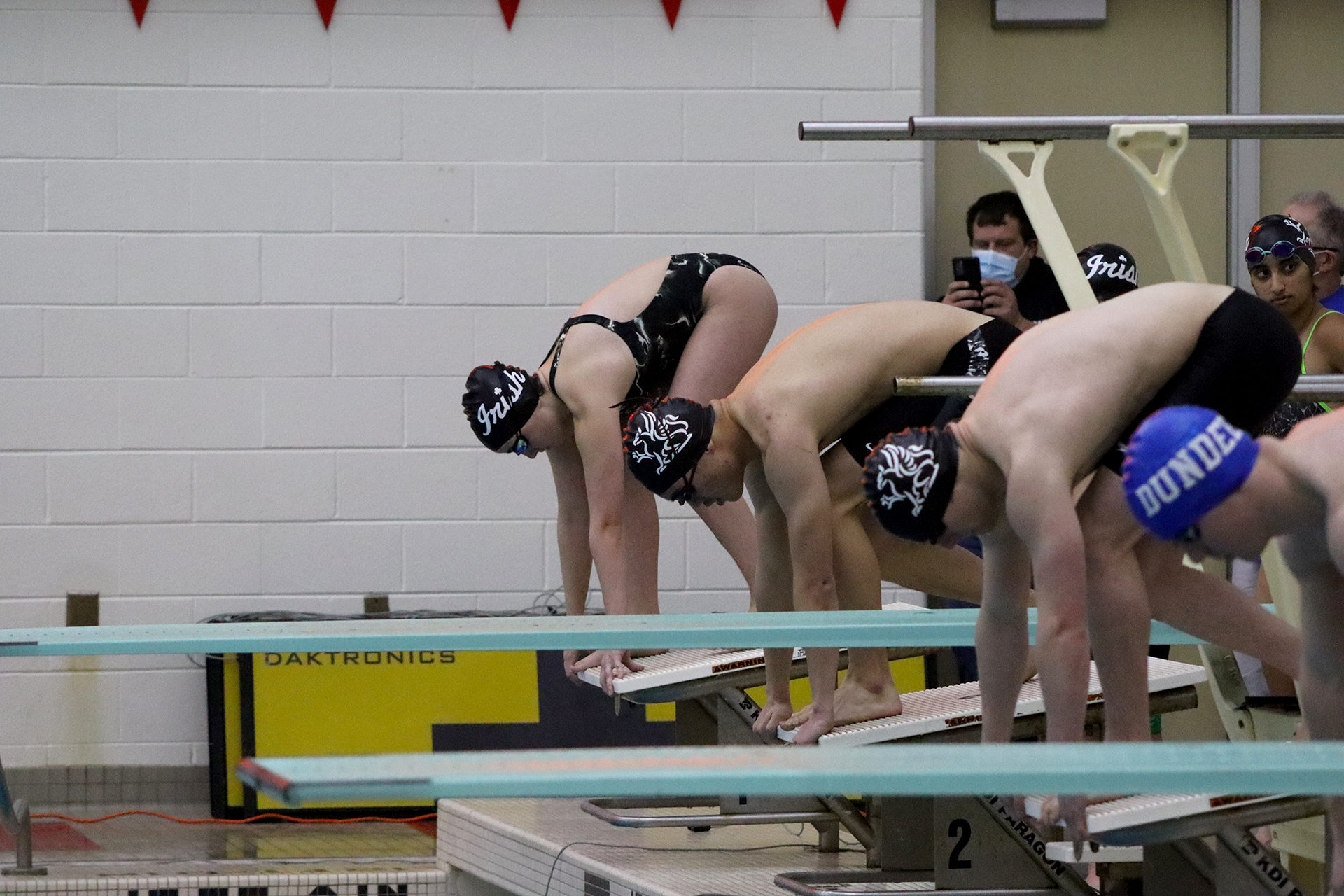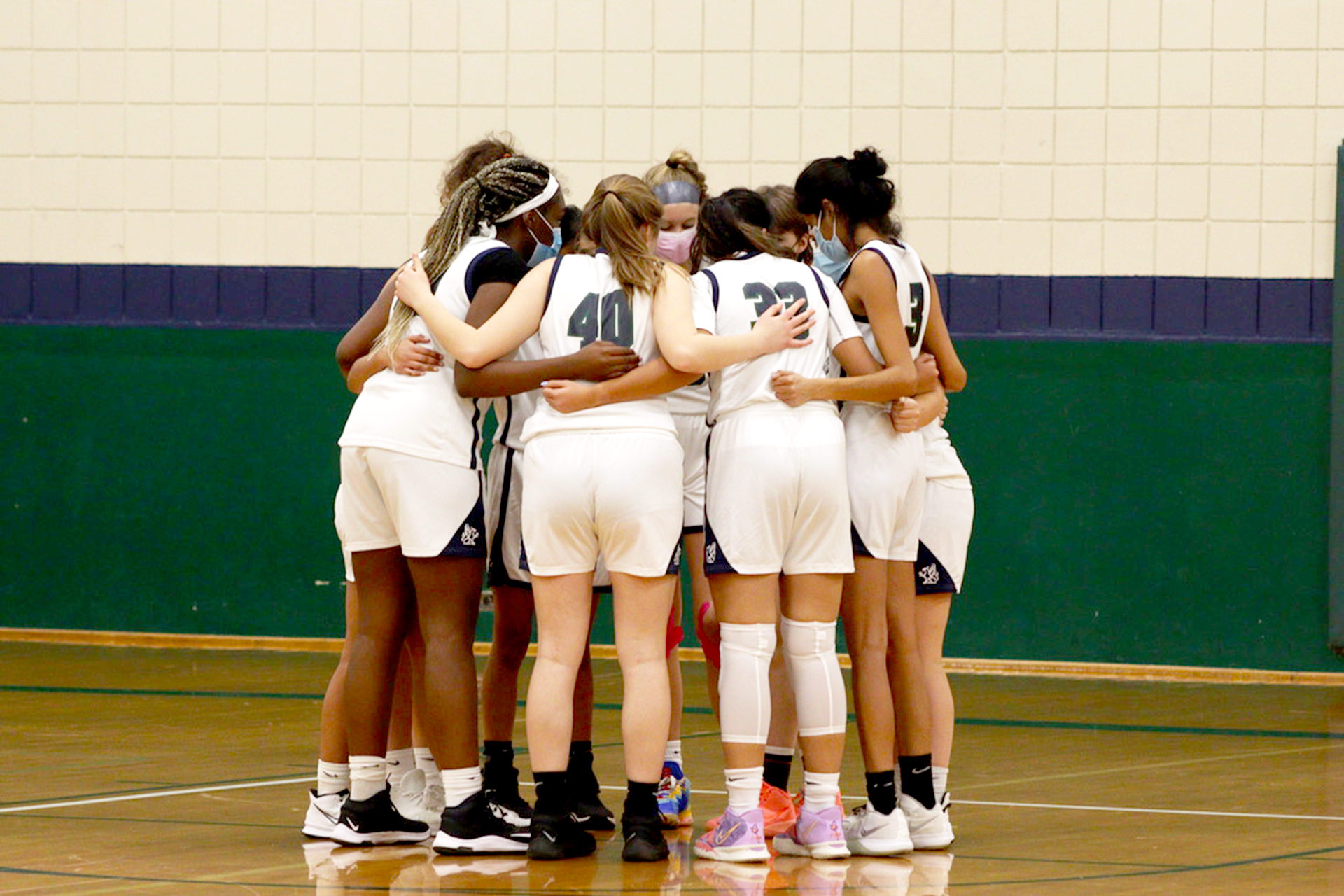THE QUESTIONS COLLEGE ADMISSION DEANS HEAR MOST OFTEN, AND THEIR RESPONSES
Every year, college admission officers across the country devote countless hours to answering questions from applicants. These are often questions about their specific college and its admission process, but just as many transcend their school and elicit answers that are relevant to college applicants everywhere. So we asked eight deans of admission for some of the latter so we could pass that knowledge on to you.
Below are some of the questions college counselors hear most often, along with their answers. Greenhills School also has a college counseling team with more than 35 years of admission experience—including nearly two decades working in college admission offices—so we picked their brain for some additional insight, and some of the guidance they share with students.
Dustin Castro, University of Michigan
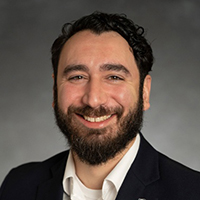 How important are my test scores? Do I really have to submit them?
How important are my test scores? Do I really have to submit them?
It’s still true that the more we know about your academic pursuits, interests, and capabilities, and personal commitments, challenges, and how you navigate your life, the better we can help you in our admissions process. Applicants are not required to report ACT or SAT scores. However, if an applicant has test scores they would like to include, we welcome them. With or without test scores, we will continue to evaluate applicants’ academic and personal fit for U-M through a holistic assessment of grades, course rigor, recommendations, extra-curricular involvement and work experiences, personal essays, and other information specific to your own experiences and high school setting.
Greenhills College Counseling Office’s Wisdom: Prepare for and take the ACT and/or SAT during your junior year, even if the colleges you’re applying to don’t require them. You can always choose not to share them if you don’t think they reflect your abilities, but a good score may help separate you from the pack and demonstrate your academic potential. If you have a college counselor, like at Greenhills, talk to them about designing a personalized testing plan to help you build confidence and improve your test-taking skills.
Jennifer Sandoval-Dancs, Claremont McKenna College
 What do you look for in applicants?
What do you look for in applicants?
The simple answer is that we seek students who excel in their academic pursuits and aspire to be leaders. Applicants demonstrate their alignment with our mission through their academic and personal records and by recommendation letters that espouse more about the student in the context of their community. To flesh this out, we look for students eager to engage with the educational material and connect to how what they are learning in the classroom applies to the real world. On the personal side of the evaluation, we are looking for students who will benefit from and contribute to our institution’s mission “to educate its students for thoughtful and productive lives and responsible leadership in business, government, and the professions.” This means that students have engaged with leadership opportunities and will appreciate being on campus that celebrates rigorous debate across diverse viewpoints.
Greenhills College Counseling Office’s Wisdom: Applying to college is a lot like dating — colleges are trying to find the right match for them while students are doing the same. Put your best foot forward and tell colleges what makes you more than just a good student, but a good human being and a leader. And find out as much as possible about the colleges you’re considering, including their mission, strengths, and expectations. Does it align with what you want for your college experience? Will it prepare you well for life after college? It’s like the old adage says, “it’s what’s inside that counts,” so try to look past the name and location of a college and focus on whether or not it is really the right fit for you.
Catarina Costa, Mount Holyoke College:
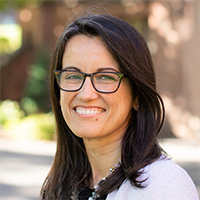 Will I be able to double major?
Will I be able to double major?
Absolutely, provided you settle on your areas of focus early enough to be able to fulfill the credit requirements of each major. About 10 percent of our students double major, though a much larger number choose a major and a minor or a certificate program (which is like a minor). At Mount Holyoke, you can also self-design a major. This option is for students whose interests cross department lines in an area for which no interdisciplinary major exists. Students may plan a special major incorporating work in two or more departments.
Greenhills College Counseling Office’s Wisdom: If you’re already confident in your choice of major, or you want to pursue a double major, consider fulfilling some core classes over the summer. This may free up some space in your college class schedule later, or allow you to make a change later on without adding an additional semester. Finding schools that are flexible enough to allow self-designed majors is a big plus, and demonstrates their willingness to meet the needs of individual students.
Jordan Gavens, Northwestern University:
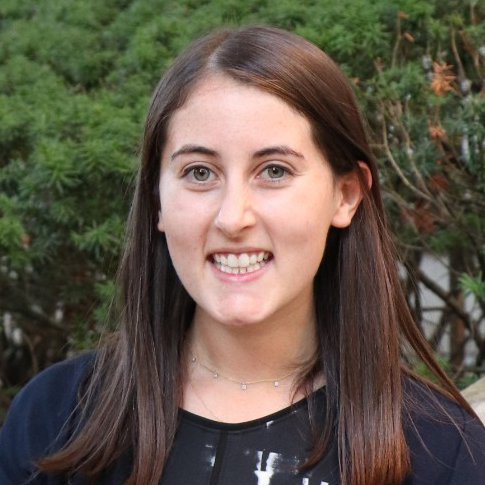 Can I switch majors or do I have to stick with the major I apply under during my four years at your school?
Can I switch majors or do I have to stick with the major I apply under during my four years at your school?
I can’t speak for all schools, but at most you can switch your major, add a major, add a minor, perhaps add a certificate! There are a lot of combinations out there. You absolutely do not need to know what you want to study yet – that’s part of the fun of taking so many different classes in college! Sometimes switching individual schools can be a bit trickier (not so much at Northwestern), but you can typically count on flexibility for majors.
Greenhills College Counseling Office’s Wisdom: It is not at all uncommon for students to switch majors during college. We encourage you to remain open and flexible. Your interests might change once you’re at college and get more hands-on experience in your major. Try to explore as much as possible in your first years at college, when courses typically fulfill general requirements rather than major-specific requirements. Get involved in student clubs, meet with guidance counselors, and talk with professionals doing the job you hope to have so you have a clear understanding of what you’re signing up for.
What does it mean to “meet full demonstrated need?”
It means that the institution will offer enough financial assistance to cover the difference between the college’s total cost of attendance and the amount that you and/or your family can contribute to that total cost. This assistance can come in a variety of forms. Northwestern meets full demonstrated need in the form of grants, scholarships, and work-study. These forms are loan-free, meaning that the student would not have to pay this money back to Northwestern. While the concept of full demonstrated need is pretty universal, it’s important to discuss the forms of aid with an institution’s financial aid office.
Greenhills College Counseling Office’s Wisdom: If you’re seeking need-based assistance, talk with colleges early in the process. Schools will work hard to help you know what is available and meet your needs, and they may point you to resources you didn’t know existed.
Sydney Jones, The University of Chicago
 How do I make my application stand out?
How do I make my application stand out?
Because we practice holistic admissions, there is no one piece of the application that carries more weight than the others. However, I would personally recommend putting your valuable time and effort into your essays. Because you can’t go back and change your past grades, or what activities you were involved in during sophomore year for example, a lot of your application is already complete. Give yourself a pat on the back! The one element that you still have a lot of control over are your essays. In particular, I recommend checking out our unique supplemental essay prompts and having fun with them.
Greenhills College Counseling Office’s Wisdom: We spend a lot of time working with students on their essays because it’s one of the few places colleges get to see who you are and not just how you measure up. Start working on this early so you can refine it, get feedback, start over if needed, and make it something that says a lot about you. Try to put yourself in the shoes of a college admission professional who is reading hundreds of essays, and think about a narrative that will make yours stand out. Be bold and creative, but authentic.
Should I apply test-optional?
UChicago is proud to have been test-optional since 2018 and will continue to be so for the foreseeable future. What that means is that while we certainly welcome students to submit their SAT/ACT scores, it is simply an option and not a requirement. We will not penalize students who do not provide testing (no matter the reason). Often, students ask about deciding whether or not to submit testing. It is totally up to the individual student to make this choice. However, I always recommend students check out our median testing scores and see where their scores falls within this range. If students feel confident in their score within this range, or if students are proud of their testing–regardless of where it stands within these ranges–I recommend students consider submitting their testing. We’re confident that for students who don’t supply testing, we can look to other areas of your application to assess academic preparedness, especially in your high school transcripts.
Greenhills College Counseling Office’s Wisdom:
Suzanne Lepley, Kalamazoo College
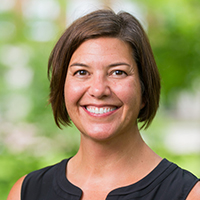 Recently, I’m getting so many questions about how we will evaluate goofy COVID transcripts.
Recently, I’m getting so many questions about how we will evaluate goofy COVID transcripts.
My answer to that is: with compassion. We’ve gone through a lot, you’ve gone through a lot and we recognize that. The benefit to getting 4,000 applications vs. 54,000 is that we can truly evaluate each one independently and holistically.
Greenhills College Counseling Office’s Wisdom: Remember that your situation is not unique — the whole world was impacted by COVID, so your transcripts look as unusual as everyone else’s.
Alec Morrissey, Bates College
 I’ve already visited campus and talked with current students. What are the other most helpful ways for me to know if the ‘vibe’ or ‘fit’ is correct?
I’ve already visited campus and talked with current students. What are the other most helpful ways for me to know if the ‘vibe’ or ‘fit’ is correct?
I think of the campus visit and communication with current students, when possible, like eggs and flour, so anything above and beyond that is icing on the cake. Connecting with your admission representative, even if you do not have pressing questions, can be helpful as an additional way of building a relationship with the institution. I also recommend getting in touch with alumni of the college/university, especially in your academic areas of interest. Most admission offices will have an ‘Alumni in Admission’ or similar program in which graduates volunteer to give informational interviews and generally be of assistance; staff can put you in touch with alums who would be most fitting. In effect, all of these opportunities are about getting to know the various stakeholders a college has, and ensures that you hear from the various communities that comprise a higher education institution.
Greenhills College Counseling Office’s Wisdom: Take colleges up on their offer to connect you with current students and/or alumni. While they are still speaking with you on the behalf of the school, they can share a unique and personal story about what it is like to be a student at that school. Keep in mind that one person’s story doesn’t represent everyone’s, but if you tell colleges about what you’re interested in and might get involved in, they will usually try to connect you with someone who has lived those experiences.
What do you most look for in applications, especially in the essay?
This is especially true for the personal statement, but throughout the application, I want to get a cohesive sense of the student’s voice. In the vast majority of cases, admission representatives have never met the student, even over email or Zoom. This means that we are trying to craft a complete and authentic image of the student from the materials provided. A couple concrete ways to accomplish this: 1) Spend more time on the extracurriculars than you might think! Avoid acronyms, and make sure to indicate the extent and duration of your leadership in the activity, when applicable. 2) When rereading your personal statement, really ask yourself if it sounds like you. It’s totally fine if a family member, counselor, or friend was involved in the editing process, but make sure any changes retain a clear and consistent authorial tone and narrative direction.
Greenhills College Counseling Office’s Wisdom: While it is important for your essay to use correct spelling and grammar, don’t over-edit it to the point that it feels generic and void of personality. If possible, find someone to proofread your essay who understands this and won’t suggest edits that remove your voice.
Corinne Smith, Yale University
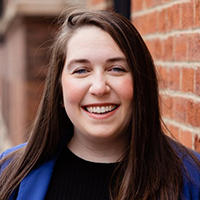 Can I submit an additional letter of recommendation? If so, how?
Can I submit an additional letter of recommendation? If so, how?
If an applicant feels the need to submit extra information, they may ask one additional recommender to write on their behalf. They should not solicit this additional letter unless they feel it will add substantially to the application. The writer should know the student personally or have mentored them closely in some capacity beyond the classroom (as we already ask for two letters from teachers).
Greenhills College Counseling Office’s Wisdom: Colleges are generally very intentional about the materials they ask applicants to submit. Consider what aspect of yourself an additional letter of recommendation would communicate, and whether or not it is truly necessary. If so, ask that letter-writer to focus on those details so it differs from the others, and so it’s obvious to the college why you were compelled to request it.
Similarly, students often ask about submitting supplemental materials. What will we accept? How is it reviewed? Where do they submit it?
At Yale we will accept and review supplemental materials in music, visual art, dance, film, creative writing, and STEM research. We do not have the capacity to review humanities or social science research (including economics). Nor do we review theater auditions. Arts and performance-based submissions are evaluated by faculty in the department. They send their recommendations to the admissions office based purely on skill or talent in the field.
It is important to note that the vast majority of applicants will not submit any supplement, and their applications will feel complete without one. A poor faculty evaluation is something we can take into consideration.
Greenhills College Counseling Office’s Wisdom: If there is something that would truly showcase something important about you that isn’t captured in the rest of the application materials, it’s okay to ask if the college will let you share that information.
How can I request an interview? OR… My classmate received an interview request, and I didn’t. What does this mean and how can I get one?
In response to the ongoing pandemic, all Yale interviews are conducted virtually. Because of limited virtual interviewing capacity, the Office of Undergraduate Admissions will prioritize interviews for whom the Admissions Committee needs more information. Interviews will remain optional, and students who do not receive an interview will not be disadvantaged. In turn, applicants may not request an interview. More information can be found here: https://admissions.yale.edu/interviews.
Greenhills College Counseling Office’s Wisdom: Don’t fret about having a different college application experience from a friend. Interviews and other requests for additional information just means a college wants to know more about someone, but you may have already dazzled them with your application and associated materials.
Milyon Trulove, Reed College:
 Why should I go to Reed?
Why should I go to Reed?
Because you want to.
I never put myself in the position of having to convince a family my college is the right choice for them; the decision is too personal and nuanced for me to play the role of “first affirmative.” Instead, my goal is to provide honest information so a student and family can make an informed decision about where they want to spend the next four years.
I’d prefer a student ask me for the missing information they need to make the college decision, perhaps more info about a program or a reason for me to connect them with a current student also from their area. Me? I want to be helpful. I’ll tell you what my college has to offer, it’s up to you to take advantage of it.
Greenhills College Counseling Office’s Wisdom: Insert Ask a lot of questions about the program and what you want to get out of it. Everyone loses when a college doesn’t end up being a good fit and a student transfers somewhere else. Colleges know this and will generally be forthcoming with information, but they need to know what information you’re looking for.



